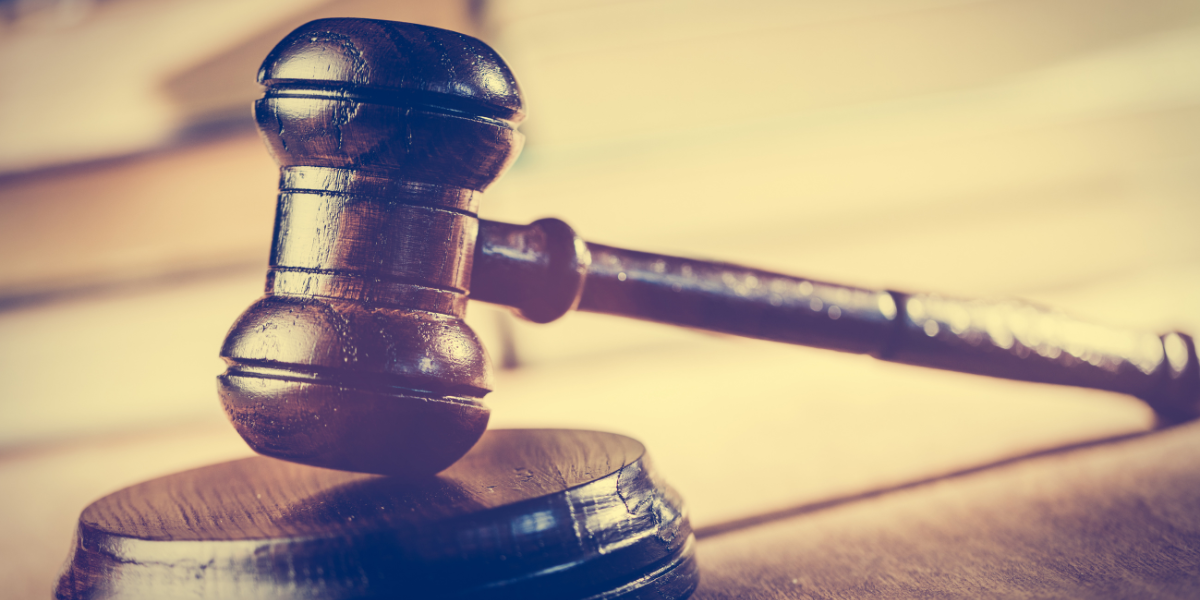The Supreme Court of the State of Israel is the most powerful court in the world. A clear expression of this is the fact that it is not bound by a typical interpretation of laws. The theory of purposive interpretation, from the seminary of Aharon Barak, holds that the literal interpretation of the law is not final. Even the intention of the legislator expressed, for example, in the explanatory notes to the laws is nothing more than a “subjective interpretation”. The “objective” interpretation of the law is the determining factor. This interpretation is intended to fulfill the “fundamental values of the judicial system, human rights being first and foremost”. The definition of these values and rights is quite vague and allows judges room for maneuver, which creates legal uncertainty. In the past, most Supreme Court judges opposed the adoption of this approach, but today it rules the roost. Since the “Mizrachi” verdict in 1995, in which the fundamental laws were recognized as a formal constitution, any judge in any court can invalidate laws that in his opinion contradict the fundamental values or the fundamental laws.
Since the status of the “public petitioner” was recognized in the late 80’s and the “everything can be arbitrated” approach began to rule the dome, the court constantly intervenes in the decisions of the executive authority in every matter and topic. The petitioners sitting as the High Court do not need to prove that they themselves or others are actually harmed by the actions and decisions of the executive authority. The High Court’s decision is not appealable and is not based on evidence, but rather on affidavits submitted by the parties. The frequency with which the High Court intervenes in the decisions and actions of the government has no equal in any other country. The executive authority always bows its head to its decisions – even if with regret and a raised eyebrow.
The authority assumed by the judiciary – and especially the Supreme Court – is not based on clear legislation, with the exception of the “restriction clauses” in the Basic Law: Freedom of Occupation and the Basic Law: Human Dignity and Freedom. Everyone knows that the legislators were not at all aware of the far-reaching conclusions and laws that the followers of Aharon Barak would develop based on these laws, the first of which was supported when it was first adopted by only 23 members of the Knesset and the second by 32 members of the Knesset. In any case, the responsibility for the results of the decisions of the judicial authority does not fall on it, but on the legislative authority and the executive authority. The judiciary enjoys, therefore, authority without responsibility. The “politicians” (and some would call them “the elected”) are subject in every field to the judicial authority that existed, to a “legislative superpower” and an “executive superpower”. It was the judiciary that initiated this transformation and developed it over the years. An expression of this attitude, which is clearly anti-democratic, is manifested in the Intensive implementation of the pretensions to engage the court in “judicial legislation” and “judicial statesmanship”.
Israel is in an unprecedented reality:
The Attorney General is the most powerful official in the entire world. His cluster of roles, which have stark contradictions, has no historical or modern equivalent in the democratic world. He serves as a consultant whose advice is final and binding, as the representative of the executive authority before the judicial authority, as the supervisor of the criminal prosecution and as someone who is authorized to represent the “public interest”. In addition to the disqualification of laws by the courts, hundreds of bills have already been stopped in the various government ministries due to the binding decision of legal advisors who believed that the proposals would not pass the “test in the High Court of Justice”.
The court and the Attorney General work symbiotically. The Supreme Court ruled that the Attorney General’s decisions do not allow the government to act contrary to his opinion or to use alternative legal representation, unless the Attorney General has given his consent to this. Many of the advisors and their subordinates are appointed after a while as judges and some of them even served as presidents of the Supreme Court. The symbiosis between the Attorney General and the judiciary is evidenced, among other things, by the imaginary criminal conviction rate that exists in Israel – although it is known that in criminal matters, defendants can only be convicted if their guilt is proven “beyond a reasonable doubt”.
There is not enough time or space to review all of the extreme cases in which the judicial system intervened, when there is a chasm between them and a reasonable legal decision. What has been accepted in Israel for the past decades has no precedent, and has no equivalent in other countries. At least until the 1980s, the judiciary practiced self-restraint, which is the exact opposite of what is accepted today.
It was not only right-wing elected officials who suffered from the hand of activism. The two terms of office of the late Prime Minister Yitzhak Rabin ended in sharp clashes with the Attorney General and the Supreme Court. More than once, Rabin expressed his opinion on these institutions in extremely harsh terms. In 1977, the Attorney General, Professor Aharon Barak, forced Rabin to resign from his post close to the revolutionary elections that were held a few weeks later. This is, of course, the issue of the Dollar Account affair- a technical offense that would normally have ended in an administrative fine. But Barak, the Prime Minister’s advisor, explained to Prime Minister Rabin that if he refused to resign, he himself as a “representative of the public interest” would submit a petition to the High Court to force the resignation. Can anyone describe the equivalent of an Attorney General who would behave this way towards those who are supposed to receive his assistance?
In 1993, the Attorney General demanded that Rabin fire Minister Deri and Deputy Minister Pinhasi who were accused (but not yet convicted) of crimes. Rabin refused and was prevented from presenting his position in a reasonable manner before the High Court. Aharon Barak – this time as a judge of the Supreme Court – supported the removal of Deri and Pinhasi even though this was not backed by any law. Rabin’s position was not accepted, and the position of the “reasonable Prime Minister” was surely that of the Attorney General. It is this position that was adopted and instituted on that occasion, without the backing of the Knesset, in the famous “Pinhasi-Deri Procedure”. This law was repealed by the Knesset in an ambiguous manner, when the new “Basic Law: The Government” was adopted in 2001 However, despite this clarification, judges, including the current president of the court Esther Hayut, expressed their opinion that the Pinhasi-Deri rule is valid and exists.
This state of affairs, which in the opinion of this writer borders on real madness and chaos, has resulted in much more extreme reform demands than those currently being discussed in the Knesset, even by members of the Knesset currently serving in the opposition factions. They deny their past proposals and statements and join the crowd opposing the reform in chanting “Democracy! Democracy!” or “Shame! Shame!”.
Dialogue will achieve better results than protest:
In the first phase of restoring the justice system, the coalition claims to address four issues:
- Levin and Rothman’s proposals recognize for the first time the Supreme Court’s right to invalidate laws. This position is moderate and quite conciliatory. The debate is about the majority that will be required from the Supreme Court for disqualification and the majority by which the Knesset will be able to overcome the disqualification if the Knesset finds that to be unacceptable.
- A second key issue is the change in the composition of the committee for the appointment of judges. In the vast majority of democratic countries – and in particular in parliamentary democracies – the judges are appointed by those who hold a majority in the parliament, the coalition or the government supported by the parliamentary majority. Levin and Rothman’s proposals support both the representation of the judiciary and the representation of the opposition in the committee – something that does not exist in many celebrated democratic countries. The exact composition of the committee is open to discussion.
- A third major issue is the regulation of the functions of the Attorney General: the separation of functions, as proposed by respected expert committees in the past, headed by presidents of the Supreme Court. In this area, the intention is to also deal with arrangements for auditing the Attorney General and the State Attorney’s Office and the unlimited power that the ombudsmen currently have in the government ministries.
- The fourth main issue at hand is the use of the standard of reasonableness in the judges’ decisions. Today, the judges can, based on the reasonableness standard, invalidate the intentions of the executive authority even when they are legal and meet the requirements of common administrative law such as “intra vires“, “absence of conflict of interest” and “avoidance of discrimination”. “Reasonableness” is largely a subjective matter. From the beginning, the Minister of Justice declared a total cancellation of the use of the reasonableness standard, but now it is clear that the coalition is willing to compromise on this matter as well.
On all issues, the Minister of Justice and the chairman of the Knesset’s Constitution, Law and Justice Committee made it clear that they are interested in a compromise with the members of the opposition and that they are not interested in forcing a unilateral settlement through the coalition’s majority in the Knesset. This attitude is also reflected in the confidential talks held at the President’s residence. Unfortunately, all opposition factions refuse to negotiate “until the legislative process is stopped completely” and instead dedicate all their efforts to protesting.
There is no doubt that many – perhaps even the majority of those who oppose the current legislation – believe wholeheartedly that the legislation promoted by the coalition endangers democracy. However, it is hard to believe that those who challenge the intentions of the legislation are aware of the facts presented above. Divisiveness and incitement may contribute to their beliefs and actions.The way is still open to compromises and de-escalation. Unfortunately, the opposition’s refusal to negotiate and the extreme and unprecedented protest actions are causing serious and irreversible damage to Israel. Political and social polarization broke records and Israel’s image in the world as a stable democracy was severely damaged. May these words lead to the de-escalation and compromise we need no less than the judicial reforms.




